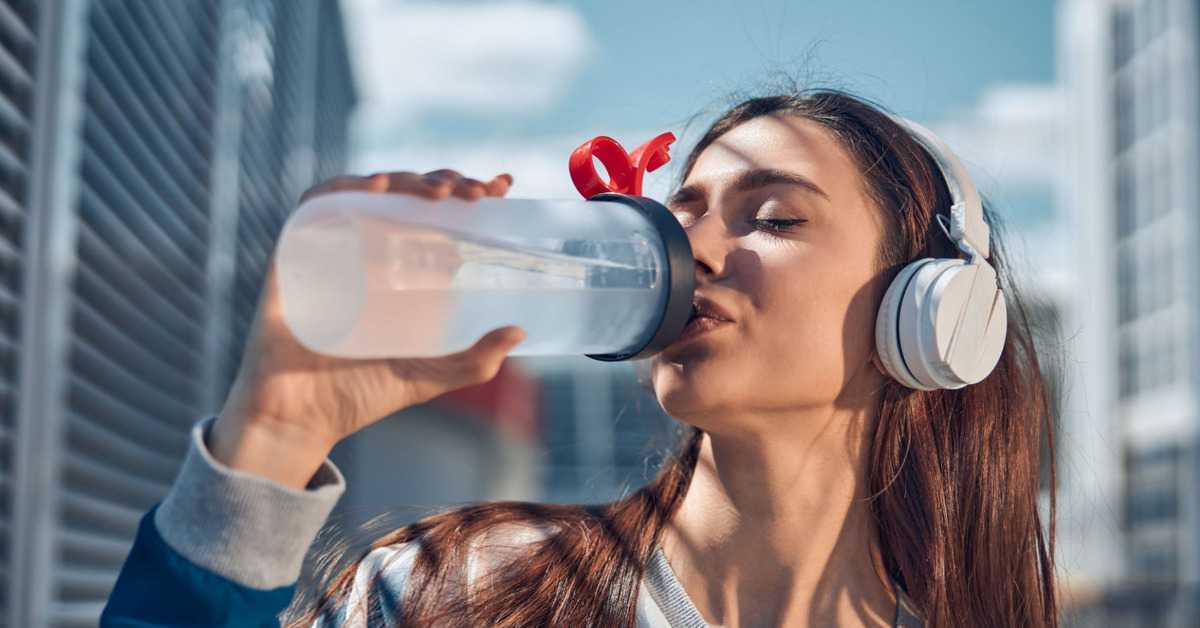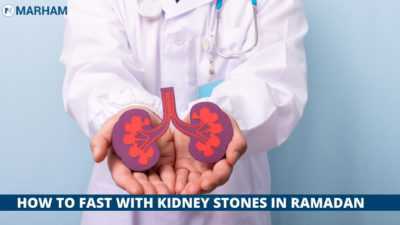If you have kidney stones and every year around this time you start worrying about how to get through, or even begin, Ramadan. Maintaining a healthy diet not only aids in the removal of kidney stones, but also in the prevention of their formation. We are here to discuss about kidney stones and How to Fast with Kidney Stones in Ramadan? So let’s get started with this amazing article;
What Exactly are Kidney Stones?
Kidney stones are solid masses formed when chemicals and minerals in your urine crystallize. These chemicals and minerals, like calcium and uric acid, are always present in trace amounts. Excess is normally flushed out with your urine. However, in some cases, having too many of them can result in kidney stones. Although there is no known cause for some kidney stones, certain lifestyle and health factors can increase your chances of developing them. As an example:
- Eating a lot of protein
- Not drinking enough fluids
- Being obese
- Having a metabolic disorder
- Taking too much vitamin D
- Having gout or inflammatory bowel disease
To know more you may discuss it with a nephrologist through Marham website.


Most Common Kidney Stone Symptoms
Men, as well as people with a family history of kidney stones, are more likely to develop them. The following are the most common kidney stone symptoms:
- severe pain in your back and sides, particularly sudden pain
- blood in your urine
- cloudy or foul-smelling urine
- constant need to urinate
- pain while urinating
- only urinating a small amount or not at all
Kidney stones produce in the kidney and then pass through the ureter. The ureter is a tube that connects the kidney to the bladder and allows urine to pass through. Small stones usually pass naturally, but larger stones can become stuck in the ureter, causing the symptoms listed above.
Kidney Stones and Fasting
Fasting increases the risk of kidney stones because many people do not properly hydrate their bodies by drinking enough of water between Iftar and Suhoor. During and immediately after Ramadan, there may be an increase in the number of kidney stone attacks. The pain from a kidney stone begins in the back and spreads to the front of the tummy.
It manifests as spasms and may be accompanied by nausea and vomiting. If you have a pre-existing kidney stone condition, seek advice on fasting from our urologists via teleconsultation. If the pain is more, you may have a fever with chills, or you see blood in your urine, go to the hospital right away. Here are a few pointers that will undoubtedly enhance your Ramadan experience for How to Fast with Kidney Stones in Ramadan?
Three litres of Water per day
Patients with kidney stones can fast during Ramadan as long as they drink three litres of water per day. They can plan their water consumption throughout the day to include 0.5 litres of water with lemon juice before iftar (eating iftar after 15 minutes) and 2.5 litres of water between iftar and sohoor. Reduce Animal Protein Intake: Patients with kidney stones should limit their consumption of animal protein because it induces calcium, which increases urinary calcium excretion, resulting in high levels of calcium oxalate, calcium phosphate, and uric acid in the kidney.


Reduce Your Consumption of Dairy Products
Avoid foods that contain refined sugars because they stimulate the pancreas to secrete insulin, increasing calcium excretion. Plant-based protein sources, such as vegetables and fruits, can help the kidneys work more efficiently.
Foods high in oxalic acid should be avoided, including spinach, beetroot, nuts, dried figs, red tea, caffeine, and coke. Lessen your salt intake on a daily basis. It is strongly advised to increase your intake of vitamin A-rich foods such as cantaloupe, carrots, apricots, pumpkin, and sweet potato. Apple and lemon juices are extremely healthy and beneficial to people suffering from kidney stones.
Herbs that are Beneficial to the Kidneys
- Cauliflower
- Parsley Nutritious Foods
- Onion
- Watercress
- Soybeans
Resources for Plant-Based Protein
- Soybeans, corn, lentils, peas, and beans are all examples of legumes.
- Watermelon and pumpkin seeds are particularly useful.
- Soft drinks, which contain phosphate, should be avoided.


Ending Notes
Reduce your intake of calcium-rich foods such as grape leaves, spinach, dried figs, molokhiyya, and arugula. Reduce your intake of phosphate-rich foods such as animal guts, meats, tuna, salmon, and mackerel fish. Whole-grain rice, whole-grain bread, pasta, berries, walnuts, plums, and prunes should all be included in your diet. Increase your consumption of buttermilk and yoghurt.
CONSULT WITH A NEPHROLOGIST FOR ANY QUERY
To know more about How to Fast with Kidney Stones in Ramadan, consult an expert. Book an appointment now, to answer all your queries related to something that’s bothering you if its about someone who is not accepting their fault. You can book an appointment with the BEST Nephrologist in Pakistan through Marham by calling at Marham helpline: 0311-1222398 or by online booking facility through the website or Marham mobile app.
Can’t find the App
| Android | IOS |
|---|---|
  |
  |
FAQ’s
Can I fast in Ramadan if I have kidney stones?
To avoid renal stone formation, nearly all epidemiological and experimental studies suggest that patients with a history of renal stones should increase their water intake and have at least a 24-hour urinary volume of 2 liters.
Can you fast with kidney stones?
Fasting increases the risk of kidney stones because many people fail to properly hydrate their bodies by drinking enough water between Iftar and Suhoor. During and immediately after Ramadan, there may be an increase in the number of kidney stone attacks.
Can a person with one kidney fast in Ramadan?
However, we conclude that patients with stable mild/moderate CKD (stage 1–3) may be able to fast if carefully monitored and counselled. We also believe that patients with stable renal transplants may be able to fast if they are closely monitored by their transplant team.

